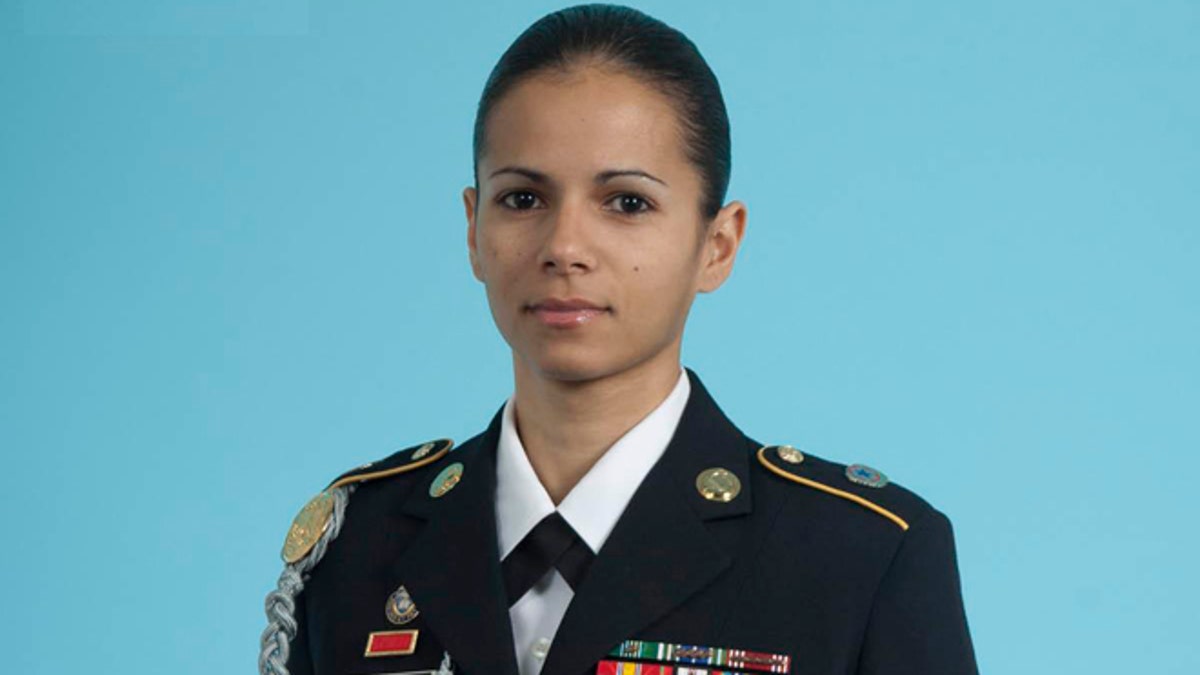
Staff Sgt. Denises Veitia has served in the U.S. Army for nine and a half years and plans to tryout for the infantry combat decision following the lifting of the combat ban for women.
The milestone-setting decision by the Pentagon to reverse course and lift the decades-old ban on women in the Armed Forces serving in combat has drawn widespread praise and support.
But not everyone thinks it’s a great idea — including a women’s rights advocacy group, which countered that the move is a sad reminder that minority women are societal victims "pushed into militaryduty due to poverty and lack of other options."
Jolleen Levid, chairwoman of AFIRM — Association of Filipinas, Feminists Fighting Imperialism, Re-feudalization, and Marginalization — said thousands of minority women could and should have better career choices other than reluctantly signing up for military service as a survival mechanism.
"They are not just heroes, they are victims of social inequalities like poverty and racism that push them into the military in the first place," said Jolleen Levid, 30.
"We don't have a choice,” Levid added. “We are pushed into the military. What options do we have as transnational women when we don't have access to college, citizenship, or affordable education?"
Women make up 14 percent of the enlisted ranks and 16 percent of officer ranks in the U.S. Armed Forces, according to the Pew Research Center. About 13 percent, roughly 22,000, women serving in the military are Hispanic.
Levid and Minerva Arias, 31, the New York co-coordinator for AFIRM, insisted they are not un-American or unpatriotic. They do see military women as heroic. They say they unequivocally support troops.
But sending them into battle is not the best way to honor them, they said.
"It's a false win," said Arias. "The military is just trying to appease women, especially after the scandal for how women are treated in the military."
Compounding the problem is the growing count of sexual harassment and abuse cases against women from inside military ranks.
Born and raised in Washington Heights, a largely Dominican neighborhood in Manhattan, Arias said as a Latina in a single family home, she knows first-hand the plight of minority communities.
The military takes advantage of minority families like hers by setting up recruitment centers in minority neighborhoods, Arias said.
"You shouldn't have to join the military to get a good education," she said.
Not surprisingly, many Hispanic military veterans beg to differ. Being sent into combat has been a lifetime goal for Army Staff Sgt. Denises Veitia, a Cuban-American from Miami who has served for nearly a decade in medical and transportation units and the Military Police.
"I signed that paper just like a man did. We all choose to fight for the same cause, and I'm absolutely proud."
Tiny, slender and barely over five feet tall, Veitia is unlikely the image of a soldier ready and able to rescue a wounded male counterpart twice her size.
"I don't like to be told I can't do something," the 28-year-old told Fox News Latino. "I'm 100 percent sure I'm going to make it."
The feminist group's stance has infuriated U.S. Rep. Ruben Gallego (R-Ariz), 33, who spent six years in a Marine infantry unit and served in Iraq in 2005 for seven months.
Gallego, who grew up in Chicago and graduated from Harvard University, rejected the notion that Latinos and minorities join the military because they have few options.
"I joined the military because I wanted to serve my country," he said. "I think women, particularly Hispanic women, want to join and serve the military because they are closer to the issues of the nation. They've seen what a good country can do for them."
